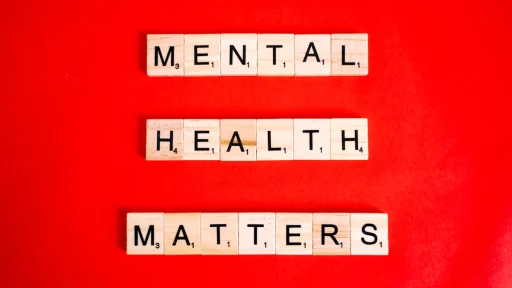
Unraveling the Link Between Sleep, Energy, and Headaches
Understanding the intricate relationship between sleep, energy levels, and headaches is crucial for effective management. Research has shown a significant impact of sleep quality on morning headaches. Lower average sleep quality and poorer-than-average sleep quality on the previous night were found to be associated with an increased likelihood of experiencing morning headaches. Additionally, higher levels of stress have been linked to increased energy, suggesting a potential connection to later-day headache onset.
Expert opinions from Angeliki Vgontzas, MD, of Brigham and Women's Hospital in Boston further emphasize this link. Patients often report that insufficient sleep triggers migraines, highlighting the pivotal role of sleep in headache occurrence. Recognizing these connections is essential for developing comprehensive strategies to manage headaches effectively.
The Connection Between Sleep Quality and Morning Headaches
Understanding the impact of sleep quality on morning headaches is essential for effective headache management. Research has consistently linked lower average sleep quality to an increased likelihood of experiencing morning headaches. Moreover, the association between perceived sleep quality and incident morning headaches highlights the significance of subjective sleep experiences in headache occurrence.
Impact of Sleep Quality on Morning Headaches
The quality of sleep plays a pivotal role in the onset of morning headaches. Higher-than-average energy levels the day prior have been found to be associated with headaches later the next day. This suggests a potential link between energy levels, sleep patterns, and subsequent headache occurrence.
Expert opinions from Dr. Mark Burish, Director of the Will Erwin Headache Research Center with the McGovern Medical School at UTHealth Houston, further emphasize this connection. Research indicates that approximately half of patients with migraines exhibit a circadian pattern to their headaches, often occurring at about the same time each day. This underscores the intricate relationship between sleep patterns and headache onset.
Recognizing these associations can guide individuals in implementing targeted strategies to improve their sleep quality and mitigate the risk of morning headaches.
The Role of Energy Levels in Headache Occurrence
Understanding the impact of energy levels on headache occurrence is crucial for managing headaches effectively. Research has revealed a significant association between higher-than-average energy levels and the likelihood of experiencing headaches. Moreover, different patterns have been observed for predictors of morning and later-day incident headaches, highlighting the nuanced relationship between energy levels and headache onset.
Link Between Energy Levels and Headaches
The link between energy levels and headaches underscores the complex interplay between physiological states and headache occurrence. A notable association has been found between average self-perceived stress and later next-day headaches, emphasizing the role of stress-related energy dynamics in headache development.
Expert opinions from Dr. Joey Gee, a neurologist with Providence Mission Hospital in California, further shed light on this connection. Dr. Gee highlights specific patterns of headaches that may intensify depending on the sleep cycle, including migraines. This insight emphasizes the multifaceted nature of energy-related triggers for headaches.
Recognizing these intricate associations can empower individuals to adopt targeted strategies to balance their energy levels effectively, thereby reducing the risk of experiencing debilitating headaches.
Understanding the Impact of Stress and Mood on Headaches
Recognizing the intricate relationship between stress, mood, and headaches is essential for comprehensive headache management. Research has revealed a significant association between self-perceived stress and later next-day headaches, highlighting the profound impact of stress on headache occurrence. Additionally, diurnal links have been observed between mood, stress, and incident headaches, underscoring the dynamic interplay between emotional states and headache development.
Association of Stress and Mood with Headaches
The association between stress, mood, and headaches unveils the complex nature of these interconnected factors in influencing headache onset. Intriguing findings indicate an association between average stress levels and changes in subjective energy levels on the previous day with incident headaches. Notably, different valences for morning and later-day headaches were observed, emphasizing the nuanced role of stress and mood in diurnal headache patterns.
Expert opinions from Dr. Tarannum M. Lateef, M.D., M.P.H., of George Washington University in Washington, D.C., further emphasize the significance of understanding these interrelationships. Dr. Lateef highlights the need for both longer-term and short-term evaluations of the dynamic inter-relationships between energy rhythms, sleep patterns, and headaches to be prioritized in future research endeavors. This underscores the importance of considering holistic approaches that encompass stress management and emotional well-being in headache management strategies.
Understanding these intricate associations can guide individuals in implementing targeted interventions to mitigate stress-related triggers and promote positive mood regulation as part of a comprehensive approach to managing headaches effectively.
Managing Headaches through Sleep and Energy Optimization
Effective headache management involves implementing strategies to optimize sleep quality, balance energy levels, and recognize the impact of stress and mood. With approximately 37 million people in the United States experiencing painful headaches, it is crucial to address these factors proactively. Research has shown a 22% increased chance of a migraine attack the following morning, emphasizing the need for targeted interventions to mitigate headache occurrence.
By prioritizing sleep quality improvement, individuals can take proactive steps to manage morning headaches effectively. Balancing energy levels plays a pivotal role in reducing the occurrence of headaches, highlighting the importance of holistic well-being. Additionally, recognizing the impact of stress and mood on headache management can guide individuals in adopting comprehensive approaches that encompass emotional well-being.






